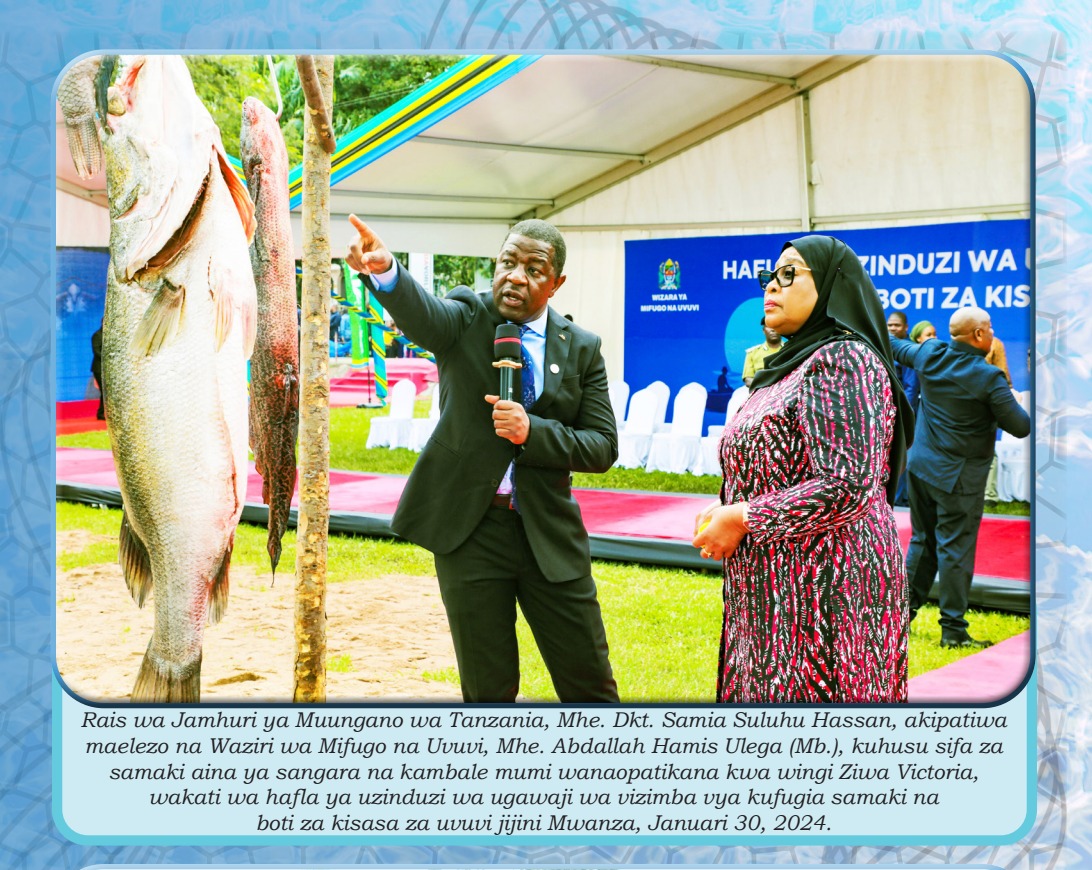In 2024/5 budget speech delivered by Hon. Abdallah Hamis Ulega (MP), Minister of Livestock and Fisheries, highlighted the government’s commitment to fostering innovation in the livestock and fisheries sectors. Innovation is crucial for improving productivity, ensuring sustainability, and enhancing the competitiveness of these sectors. The budget outlines several initiatives aimed at promoting and supporting innovation in livestock and fisheries.
One of the major initiatives highlighted in the budget is the promotion of modern breeding technologies. The government is investing in the development and dissemination of advanced breeding techniques, such as artificial insemination and selective breeding. These techniques allow for the controlled and selective breeding of livestock, resulting in improved genetic quality and higher productivity. The establishment of breeding centers equipped with modern facilities is a significant step towards achieving this goal. These centers serve as hubs for breeding high-quality livestock and providing training and support to farmers. By promoting modern breeding technologies, the government aims to enhance the genetic quality of livestock and increase productivity.
The budget also emphasizes the importance of innovation in feed management. The government is promoting the use of advanced feed formulations that provide balanced and nutritious diets for livestock. This includes the production and distribution of high-quality animal feeds and the establishment of feed storage facilities to ensure a consistent supply of feed throughout the year. Research is being conducted to develop new feed additives that enhance feed efficiency and reduce methane emissions from livestock. By advancing feed management practices, the government aims to improve the health and productivity of livestock and reduce the environmental impact of livestock farming.
Innovation in disease management is another critical area of focus for the government. The budget outlines initiatives to enhance disease surveillance, diagnosis, and treatment capabilities. Research is being conducted to develop vaccines, diagnostics, and treatments for common livestock diseases. The government is also investing in the establishment of diagnostic laboratories equipped with the latest technology. These laboratories provide accurate and timely diagnosis of livestock diseases, enabling prompt and effective treatment. By improving disease management capabilities, the government aims to protect livestock health and reduce economic losses due to disease outbreaks.
The budget speech by Hon. Abdallah Hamis Ulega (MP) also highlighted the importance of innovation in aquaculture. The government is promoting the use of advanced aquaculture techniques, including the use of recirculating aquaculture systems, biofloc technology, and integrated multitrophic aquaculture. These techniques enhance the efficiency and sustainability of fish farming by improving water quality, reducing waste, and increasing productivity. The establishment of fish farming demonstration farms is a significant step towards achieving this goal. These farms serve as training and innovation hubs where fish farmers can learn about best practices in aquaculture. By promoting innovative aquaculture techniques, the government aims to enhance the productivity and sustainability of fish farming.
Public awareness and education are vital for promoting innovation in livestock and fisheries. The budget includes initiatives to raise awareness about the importance of innovation and to educate farmers and fishers on best practices. This involves the dissemination of information through various channels, including workshops, seminars, and media campaigns. By increasing awareness and knowledge, the government aims to encourage more farmers and fishers to adopt innovative practices and technologies.
Collaboration with academic institutions and international organizations is another key component of the government’s innovation strategy. The government is working closely with universities, research institutions, and international development partners to leverage global expertise and innovation. These collaborations facilitate the exchange of knowledge and technologies, enabling Tanzania to adopt best practices in livestock and fisheries. By fostering partnerships with leading research institutions, the government aims to enhance the quality and impact of its innovation efforts.
The government’s efforts to promote innovation in livestock and fisheries are expected to have significant long-term benefits. Innovation leads to higher productivity and profitability, which translates into increased incomes for farmers and fishers. It also enhances the sustainability of livestock and fish farming, ensuring that these sectors can continue to provide food and income for future generations. By investing in innovation, the government aims to create a dynamic and competitive agricultural economy.
In conclusion, the initiatives to promote innovation in livestock and fisheries outlined in the budget speech by Hon. Abdallah Hamis Ulega (MP) reflect the government’s commitment to fostering a sustainable and productive future for Tanzania’s agricultural sectors. Through the promotion of modern breeding technologies, advanced feed management practices, improved disease management capabilities, innovative aquaculture techniques, public awareness initiatives, and collaboration with academic institutions and international organizations, the government is taking comprehensive steps to promote innovation. These initiatives are expected to have a significant positive impact on the livelihoods of farmers and fishers and contribute to the overall economic growth and development of Tanzania.
